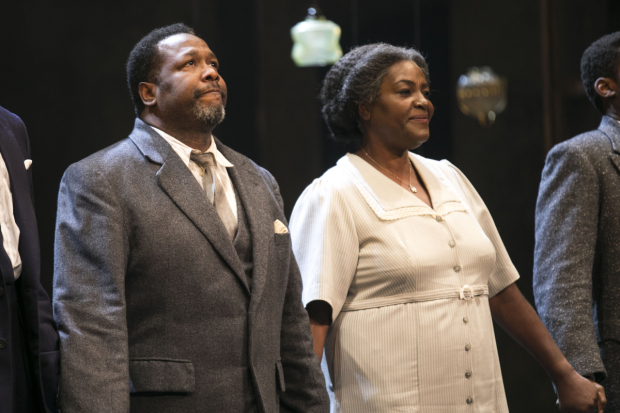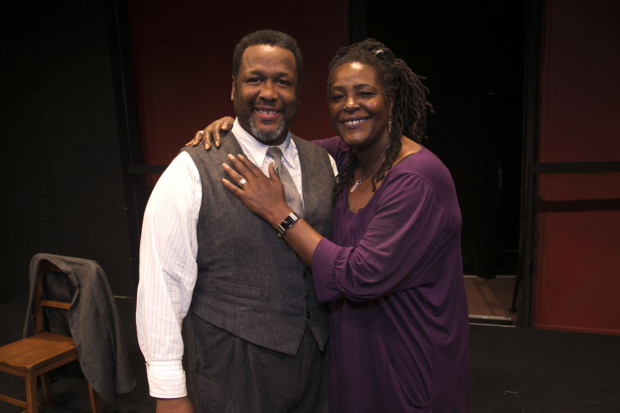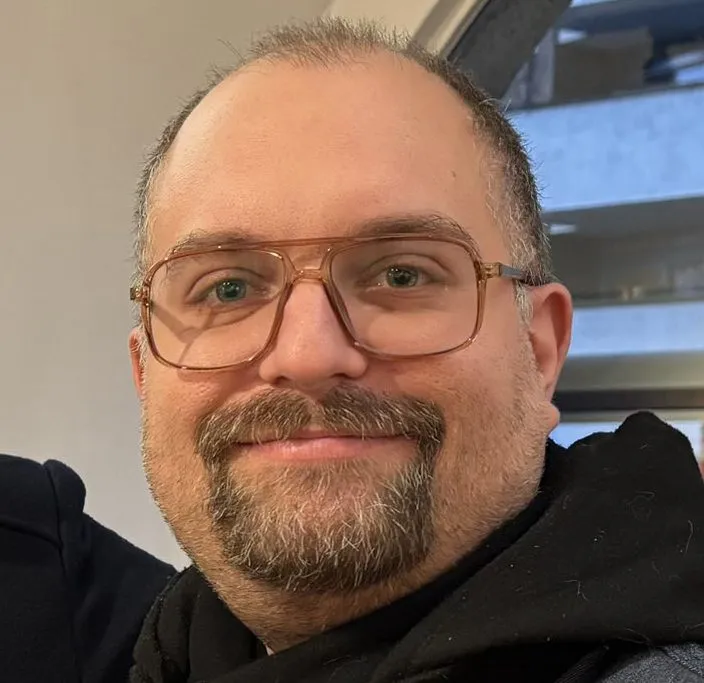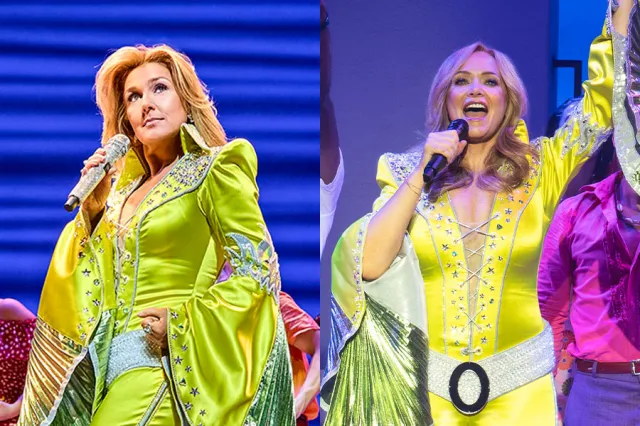Wendell Pierce and Sharon D Clarke on ”Death of a Salesman”: ‘From the minute we met, there was this deep joy’

© Dan Wooller, 2019
When the UK-based Clarke made her Broadway debut last year in Caroline, or Change, Pierce flew in from Louisiana to be in the audience at her first preview, in lieu of her wife, who was arriving in the United States from London later in the run. Now, they’re back together in New York and are once again Willy and Linda at the Hudson Theatre, where the show is currently in previews.
Here, Pierce and Clarke tell us about their friendship, and how that off-stage bond helps them find the joy in one of the heaviest plays ever written.
This conversation has been condensed and edited for clarity.
This is your third go at Willy and Linda, and your first time doing it in America. What is it like to be back in the rehearsal room?
Sharon D Clarke: It’s an absolute joy. What is really wonderful is that [director] Miranda Cromwell is not remounting the production that we did in London. She’s not going “we’ve got the show, so let’s just do it.” We’re coming at it fresh. We’re finding new things, mining, going deeper, and having fun. We just changed the top of one scene today, and it’s absolutely beautiful.
Wendell Pierce: What’s amazing is that there’s such a wealth of complexity to mine in the play. It’s an ongoing thing, where there’s always something more you can find. There are new discoveries almost every day. You hear something for the first time that you hadn’t noticed before and it adds an element of what’s at stake. There’s a plethora of things to really explore.
Sharon: This isn’t the show that we did before.
Wendell: All the bones are there. It’s the same examination of whether your best days are behind you, or the false hope and promises and illusion of this desired life that is unobtainable, and this inability to see the love that you have around you. For me, it’s about the inability that Willy has to see the wealth of love that he has, while he’s looking for something materialistic…
Sharon: But then, all of his choices are out of love.
Wendell: That’s the paradox.
Were these roles that you had always wished to play? Or was this a surprise when they came your way?
Wendell: It was completely out of left field. I hadn’t expected it. It wasn’t something that I had thought about doing. As soon as the opportunity came, it was a no-brainer.
Sharon: Also, being the actors of the color that we are, this is a classic play in the American canon that has not been open to our kind. So it’s not ever a dream that I would’ve had. I wouldn’t have thought “Can I play Linda Loman?” The minute that the opportunity comes up, you go “Can we put this in a different light so a new generation can see themselves represented?” And then you think “Okay, I see myself up there.”
Wendell: it just amplifies everything that’s already there. I tell people all the time, “We’re doing Death of a Salesman.
Sharon: It’s not a colorblind Death of a Salesman, it’s not an all-Black Death of a Salesman. It’s a Death of a Salesman for our times, especially coming out of the summer of Black Lives Matter. It heightens everything. When people see it, they go “You must have changed the script.”

© Dan Wooller, 2019
Wendell: That was always the joy, when people go “It’s really wonderful how you changed that bit right there. That’s not in the play.”
Sharon: “Yes, it is.” It’s visceral.
Did you know each other when you first started rehearsals back in 2019, or did you become friends and colleagues doing this show?
Wendell: I knew of Sharon.
Sharon: I knew of Wendell.
Wendell: And we have a mutual friend who I called and said “Hey, do you know Sharon D Clarke?” and he goes “Oh, man, I love her. You’re going to be wonderful with her.”
Sharon: He said the same thing to me.
Wendell: From the minute we met, there was this deep joy. Deep love. Sharon has taken care of me.
Sharon: We take care each other.
Wendell: She’s become a dear friend. One of the joys of doing this…
Sharon: Is the gift of friendship.
Wendell: There are moments in the play where it’s like “I could just be right here with Sharon forever.” Blessed moments.
Sharon: Truly, the stage love of my life.
Does that make the play easier to do night after night?
Wendell: It makes the craft easier. She is a student of her craft. When you’re putting out energy, she is accepting it and giving you something right back, and vice versa. There are moments when I hear just her voice and it moves me. A glance will move me. There’s a connection that’s so authentic and organic that comes from craftsmanship. When you have a masterful craftswoman like this by your side, it makes the exploration even deeper, so you get to go further and actually illuminate the play even more.
Sharon: It makes it joyous. The subject matter that we are dealing with is heavy, deep shit. It’s heartbreaking. It’s torturous. It’s harrowing. And when you can have those moments of joy and connection and creativity, and love, it makes the work such a pleasure.
Sharon, this is your second autumn on Broadway now, having done Caroline, or Change this time last year.
Sharon: I’m an old hand at it now. [Laughs] No. It’s all very fresh and new and exciting for me. Caroline finished in January, so I didn’t expect to be back already doing another wonderful, amazing piece of theater. I feel absolutely blessed, and I’m still like, “What? Really? Oh, my God.” It’s wonderful. I don’t feel like an old pro at all. I feel like a giddy, young school gal.
Wendell: And I love the range. In just two seasons, you will see such a range of this wonderful woman, this great actor.
Wendell, what is it like for you to take on this role?
Wendell: It’s one of the great honors of my life. Not my career, my life. I think of all the men who wanted to play the role and didn’t have the opportunity, and never would get the opportunity, and the obligation I owe to them. And to think that I’m connected to Lee J. Cobb and Dustin Hoffman and Philip Seymour Hoffman and George C. Scott and Brian Dennehy, what a humbling and honorable distinction to have.
It’s been a while since I’ve been on Broadway, and it’s great to be back with this classic American play. It’s profoundly moving. I can’t even talk about it without being moved. I just had my costume fitting, and I put on the suit and hat, and I was just overwhelmed. I’m so thankful. It is a real honor that I step into with great joy, profound importance, and deliberate courage acting in the face of fear, not the absence of fear.
Sharon: And you get to bring it home, baby. You get to bring it home.
Find out more about the production on our sister site, where this interview first ran.












